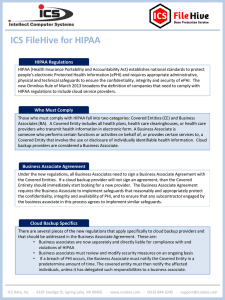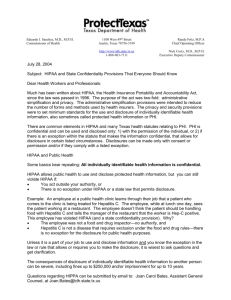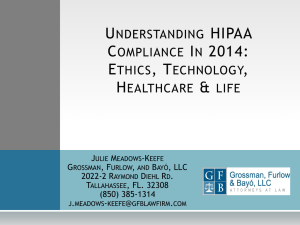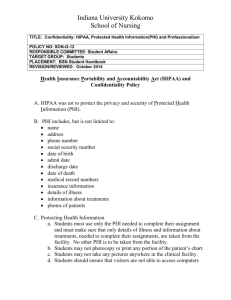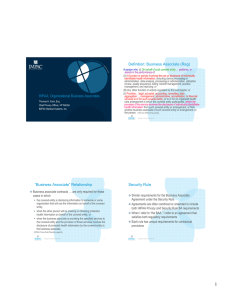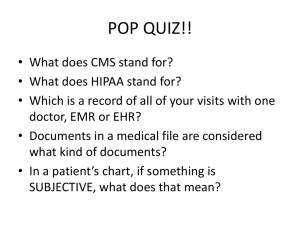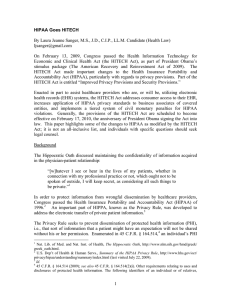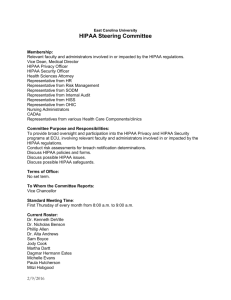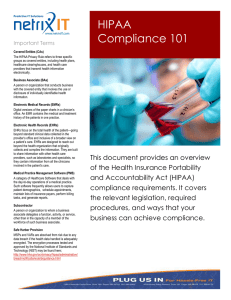BAA Model Response Letter (Modify information as indicated in the
advertisement
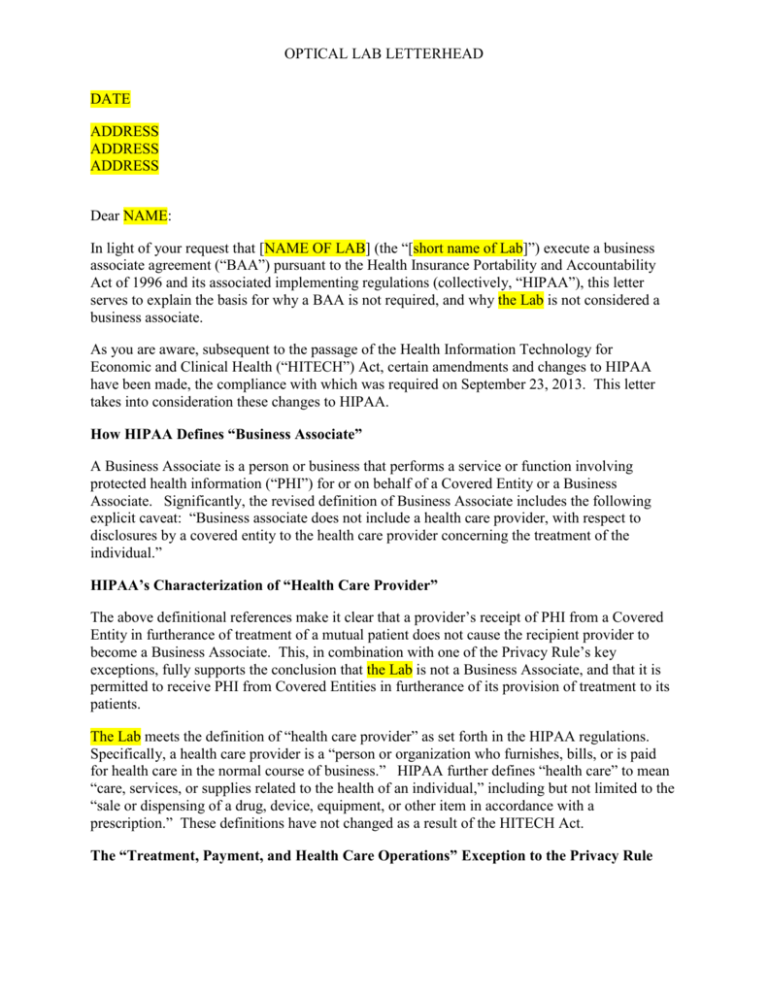
OPTICAL LAB LETTERHEAD DATE ADDRESS ADDRESS ADDRESS Dear NAME: In light of your request that [NAME OF LAB] (the “[short name of Lab]”) execute a business associate agreement (“BAA”) pursuant to the Health Insurance Portability and Accountability Act of 1996 and its associated implementing regulations (collectively, “HIPAA”), this letter serves to explain the basis for why a BAA is not required, and why the Lab is not considered a business associate. As you are aware, subsequent to the passage of the Health Information Technology for Economic and Clinical Health (“HITECH”) Act, certain amendments and changes to HIPAA have been made, the compliance with which was required on September 23, 2013. This letter takes into consideration these changes to HIPAA. How HIPAA Defines “Business Associate” A Business Associate is a person or business that performs a service or function involving protected health information (“PHI”) for or on behalf of a Covered Entity or a Business Associate. Significantly, the revised definition of Business Associate includes the following explicit caveat: “Business associate does not include a health care provider, with respect to disclosures by a covered entity to the health care provider concerning the treatment of the individual.” HIPAA’s Characterization of “Health Care Provider” The above definitional references make it clear that a provider’s receipt of PHI from a Covered Entity in furtherance of treatment of a mutual patient does not cause the recipient provider to become a Business Associate. This, in combination with one of the Privacy Rule’s key exceptions, fully supports the conclusion that the Lab is not a Business Associate, and that it is permitted to receive PHI from Covered Entities in furtherance of its provision of treatment to its patients. The Lab meets the definition of “health care provider” as set forth in the HIPAA regulations. Specifically, a health care provider is a “person or organization who furnishes, bills, or is paid for health care in the normal course of business.” HIPAA further defines “health care” to mean “care, services, or supplies related to the health of an individual,” including but not limited to the “sale or dispensing of a drug, device, equipment, or other item in accordance with a prescription.” These definitions have not changed as a result of the HITECH Act. The “Treatment, Payment, and Health Care Operations” Exception to the Privacy Rule With the above discussion in mind, a key exception to HIPAA’s general prohibition against a provider disclosing PHI absent a patient’s authorization or the execution of a BAA is the “treatment, payment and health care operations” exception (“TPO Exception”). This exception permits any Covered Entity to disclose a patient’s PHI for the treatment or payment activities of another health care provider. This exception has not been changed pursuant to the HITECH Act or its implementing regulations. HIPAA Implications for the Lab The Lab is a “health care provider” as indicated by the above definitions. The TPO Exception permits a Covered Entity (such as [NAME OF CE REQUESTING BAA]) to disclose PHI to another health care provider (such as the Lab) for the treatment activities of the recipient provider. Importantly, this exception is not limited to disclosures for the treatment activities of only covered entity providers, but rather for the treatment activities of all providers regardless of whether they are Covered Entities. As such, it would not be appropriate for the Lab to enter into a BAA with [NAME OF CE REQUESTING BAA] with regard to its provision of treatment to patients. * * * If you have any questions, please do not hesitate to contact me at ________. Regards, [ ] -2-
